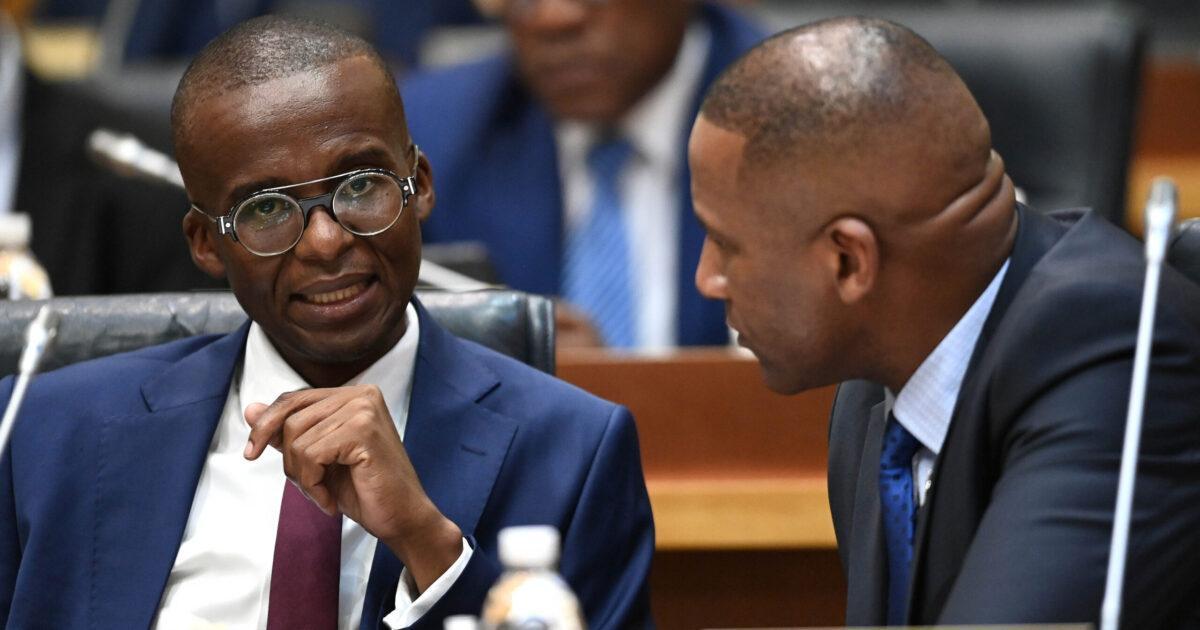Africa-Press – Botswana. Leading economist Sennye Obuseng has warned that failure to pay public salaries could have catastrophic consequences for citizens’ livelihoods and the broader financial system because the government is also facing a P5 billion shortfall in settling invoices and paying service providers.
The public service is on edge after the Ministry of Finance (MoF) made an unprecedented admission that it may not be able to pay civil servants’ salaries for June.
The revelation has also sparked fears of retrenchments and deepened anxiety over the country’s fiscal health, despite the government’s assurance that the situation will stabilise.
Addressing Public Accounts Committee (PAC) this week, the Permanent Secretary of MoF, Dr Tshokologo Kganetso, revealed that the government is grappling with such serious cash flow challenges and declining revenues that the Government Investment Account has a mere P700 million in it – far below what is needed to meet its monthly obligations.
Job cuts
“We are not yet sure whether we will be able to pay June salaries, but we will play our chessboard cleverly,” said Dr. Kganetso.
Economist Sennye Obuseng has warned that if the situation is not addressed urgently, it could lead to job cuts in the public service as government scrambles to contain its wage bill.
“This is a red flag,” Obuseng told this publication. “Jobs are now on the line. Government might be forced to cut spending. And under these pressures, that often translates into retrenchments.”
Botswana has over 150,000 civil servants on its payroll. A delay or non-payment of salaries would be unprecedented and could paralyse essential public services, not to mention affecting household income across the country.
Public service unions
Public service unions are watching the situation closely. Accusing the nation’s leadership of “fiscal recklessness and poor economic planning”, a union insider told this publication that the government has a constitutional and moral obligation to ensure that salaries are paid.
The same concerns have been echoed by analysts who have accused the ruling elite of pursuing expansionary policies without adequate revenue generation or fiscal discipline. Recent political decisions, such as the promise of a P2500 for Village Development Committees, are cited as ill-timed populist sweeteners.
Economist Obuseng warned that the government is currently facing a staggering P5 billion backlog in unpaid invoices – a figure that could result in critical service providers like private hospitals not offering their services.
The whole supply chain
“That puts the lives of ordinary Batswana at risk,” he said. “It is not just about civil servants any more but the whole supply chain that’s about to unravel.”
He also highlighted the knock-on effect on the banking sector. “Public servants make up the largest group of borrowers in the country,” said the economist.
“If they default on their loan payments due to delayed salaries, banks will see a rise in non-performing loans, which could ultimately destabilise the entire financial system.”
Boko’s bane
The announcement could not have come at a worse time politically. President Duma Boko, who is still in the early phase of his presidency, may find his popularity wane if the crisis worsens.
Political analysts say people may also begin to question whether the new administration is capable of managing the economy.
They say if the situation continues to deteriorate, Botswana may be forced to seek external financial support – including a possible bailout from international lenders – or be compelled to implement painful austerity measures.
Heading off a cliff
Obuseng, however, commended the Ministry of Finance for its transparency but urged for more than just honesty. “What we need now is urgent fiscal restructuring,” he said.
“The government must align its commitments with its revenue performance. Otherwise, this train is heading off a cliff.”
For More News And Analysis About Botswana Follow Africa-Press






